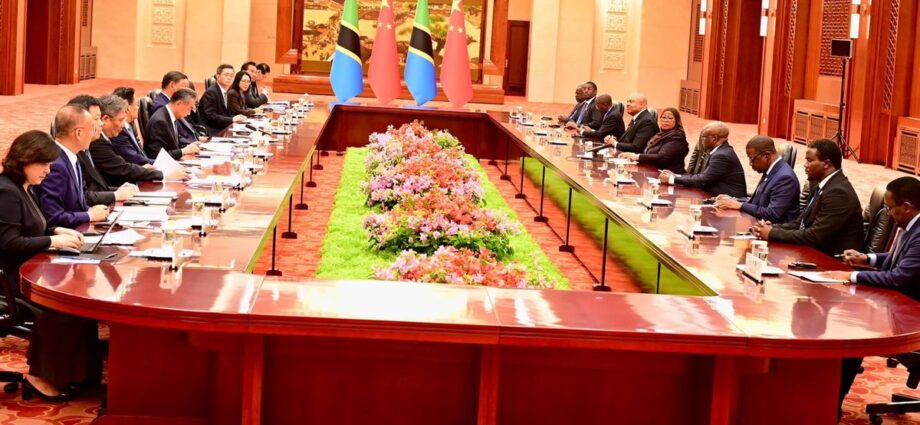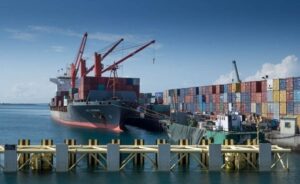It is a busy week for African leaders and government officials. Sunday kicked off with the second Indonesia-Africa Forum (IAF), held on the tourist island of Bali.
Twenty-two African countries, including current and former leaders, sent delegates to the meeting. The main conference ended on Tuesday, and several of the leaders and officials jumped on their flights for the grander 2024 Forum on China-Africa Cooperation (Focac) in Beijing, which runs until September 6.
The Indonesia meeting set off the inevitable wave of African rage, with many saying it was another shameful episode of foreign powers and nations “passing their eyes through” Africa by gathering its leaders like street urchins to throw them crumbs and to kiss their leaders’ rings.
Indonesia seems particularly problematic because it is not a superpower like the United States of America, European Union, or China; or an emerging superpower like India or Turkey. Its nominal gross domestic product (GDP) in 2023 was $1.371 trillion, only nearly four times larger than South Africa’s $373.233 billion. It is not China, whose economy is 37 times bigger than South Africa’s.
It is understandable how this corralling of African leaders to summits by leaders outside the continent injures pan-African pride. However, it might be time for the continent to accept the reality that pride does not put food on the table. Additionally, this moralist carping on the roadside and outrage on social media will not stop Beijing and others from holding the summits.
For starters, Africa is called to these conferences because it is for the taking. Three generations of the continent’s leaders have mostly oppressed, pillaged and misruled it, leaving it weak, with the global balance of power weighed against it.
Big individual economies
By the end of 2023, Africa accounted for nearly 19 per cent of the world population, but for only 3 per cent of global GDP. That is punching hopelessly below its weight. That means its convening power is equally minuscule.
Secondly, the summits should be a hard lesson in how states pursue their interests, and Africa needs to learn the right lessons. For the convening countries, the summits are their way of feeding the African cow so they can milk it. We might be better served hating the game, not the players.
At IAF, rising Indonesian companies were running around closing deals to sell two-wheel electric vehicles and vaccines, and sign trade contracts. In all, Indonesia had projected to come away with Africa business worth $3.5 billion. President Joko Widodo didn’t invite African governments hoping their delegates would go and take a naked bath at the Batur Natural Hot Spring.
If one holds their noses, they will see a few salutary things about gathering African leaders at a Focac. It is a recognition of the premium of the African market as a collective, which is a big deal, as opposed to 54 almost non-existent, small, medium, and nearly big individual economies.
Africa has long recognised its power as a collective, and after decades of sloganeering and empty rhetoric, finally, in 2018 the leaders got serious and launched the African Continental Free Trade Area. However, several of the leaders who are at Focac, and some of those who showed up in Bali, have done nothing to advance it.
Opening African markets
It is cheaper to import goods into Africa from North America, Europe and Asia, than it is from any other country to another on the continent. Nigeria still imports large volumes of toilet paper and soap from the United Kingdom, although it could be adequately supplied by manufacturers in Kenya, South Africa or Uganda.
However, try exporting toilet paper from Kenya to Nigeria, it will arrive in Lagos months later and will be far more expensive than the UK imports. This is because of horrible logistics, infrastructure, taxes, corruption and a dozen other barriers to intra-African trade. It costs $2,000 to ship a container from 9,555 kilometres away in China to Beira port in Mozambique, but $5,000 to ship it just 500 kilometres inland to Malawi. We are not serious people.
The day that is reversed, and it costs $250 to ship a container from Mozambique to Malawi, while it is still $2,000 from China to Mozambique, it will be game up.
It won’t take much. One day, a madman or woman in an African state house will drop their trousers and say “Come ye all African brethren and sistren. Bring and exchange your gold and silver. Travel and trade freely. Farm where you find land, and sell in the markets on your way. Then go back to your homes and speak of the bounty of this market”.
There will be a domino effect, and before long, few African leaders will be showing up to kiss the ring of the Big Man of the day in Beijing.
To his credit, Kenya President William Ruto had got it in the early days of his presidency and talked the right talk about opening African markets to Africa, but the hard and crude realities of governing in these unforgiving lands swept him away.
The author is a journalist, writer and curator of the “Wall of Great Africans”. @cobbo3














